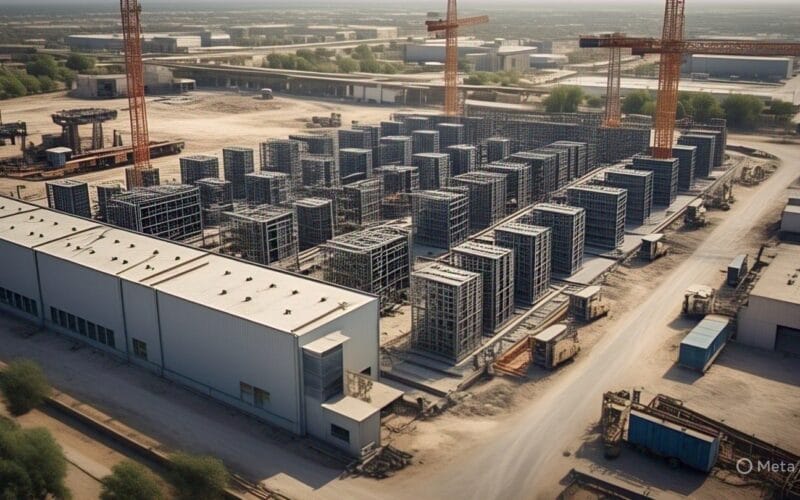Pakistan’s bold move to allocate 2,000MW of surplus electricity for Bitcoin mining and AI data centers marks a significant step toward digital transformation, aiming to attract foreign investment, create high-tech jobs, and position the country as a global tech hub.(Pakistan
Table of Contents
- Introduction
- Strategic Allocation of Surplus Energy
- Economic Implications
- Regulatory Framework and Incentives
- Infrastructure Development
- Global Positioning and Collaborations
- Environmental Considerations
- Challenges and Considerations
- Future Outlook
- FAQs
Introduction
In a groundbreaking initiative, Pakistan has announced the allocation of 2,000 megawatts (MW) of surplus electricity to power Bitcoin mining and artificial intelligence (AI) data centers. This move, spearheaded by the Pakistan Crypto Council (PCC) and backed by the Ministry of Finance, aims to harness underutilized energy resources to foster digital innovation, attract foreign investment, and create high-tech employment opportunities.(Dawn, Cointelegraph)
Strategic Allocation of Surplus Energy
Pakistan’s energy sector has been grappling with challenges such as high electricity tariffs and surplus generation capacity. The rapid adoption of solar energy has further exacerbated these issues, leading to underutilized power plants operating below capacity. By redirecting 2,000MW of surplus electricity to Bitcoin mining and AI data centers, the government aims to monetize excess energy and transform financial liabilities into revenue-generating assets. (Reuters, Dawn)
Economic Implications
The initiative is expected to have multifaceted economic benefits:
- Foreign Direct Investment (FDI): Attracting billions of dollars in FDI by positioning Pakistan as a competitive destination for digital infrastructure.
- Job Creation: Generating thousands of direct and indirect high-tech jobs in fields such as blockchain, AI, and data sciences.(Dawn)
- Revenue Generation: Enabling the government to earn foreign exchange through Bitcoin mining and digital services.
- Economic Diversification: Reducing reliance on traditional sectors by expanding into emerging digital economies.(Pakistan Today)
Regulatory Framework and Incentives
To facilitate this digital transformation, the government has undertaken several regulatory measures:
- Legalization of Cryptocurrency: Recognizing and regulating cryptocurrency to integrate it into the financial landscape.(Dawn)
- Pakistan Crypto Council (PCC): Establishing a government-backed body to oversee blockchain technology and digital assets.(Dawn)
- Tax Incentives: Introducing tax holidays and customs duty exemptions for AI infrastructure developers and Bitcoin miners.(Dawn)
- Digital Asset Authority: Creating a dedicated body to regulate blockchain-based financial infrastructure, including exchanges, wallets, and tokenized platforms. (TradingView)
Infrastructure Development
The success of this initiative hinges on robust infrastructure:(Pakistan Today)
- Repurposing Power Plants: Utilizing underperforming coal-based power projects like Sahiwal, China Hub, and Port Qasim for digital operations.(@EconomicTimes)
- Submarine Internet Cable: Enhancing digital connectivity through the Africa-2 Cable Project, a 45,000-kilometer global network connecting 33 countries.(Dawn)
- Special Economic Zones: Establishing zones with state-of-the-art infrastructure and streamlined regulations to foster innovation.(Pakistan Today)
Global Positioning and Collaborations
Pakistan’s strategic location and proactive policies position it as a potential global hub for digital services:(Dawn)
- Geographic Advantage: Serving as a digital bridge between Asia, Europe, and the Middle East.(Dawn)
- International Interest: Attracting global Bitcoin miners and data infrastructure companies for exploratory discussions.(Dawn)
- Collaborations: Partnering with international entities, including a Trump-backed crypto venture, to boost blockchain adoption. (Dawn)
Environmental Considerations
The initiative also addresses environmental concerns:
- Renewable Energy Integration: Planning to power future phases of mining operations with renewable energy sources like wind, solar, and hydropower.
- Efficient Energy Use: Redirecting idle energy to consistent and heavy energy-using operations like AI data centers and Bitcoin mining.(Dawn)
Challenges and Considerations
While the initiative holds promise, it also presents challenges:(@EconomicTimes)
- Regulatory Oversight: Ensuring transparent and effective regulation to prevent misuse and ensure investor confidence.(TradingView)
- Cybersecurity: Implementing robust security frameworks to protect digital infrastructure from cyber threats.(Pakistan Today)
- Public Perception: Addressing concerns related to cryptocurrency and its implications on the economy.
Future Outlook
Pakistan’s allocation of 2,000MW of electricity to Bitcoin mining and AI data centers marks a significant step toward digital transformation. By leveraging surplus energy, implementing supportive regulations, and fostering international collaborations, the country aims to position itself as a global leader in digital innovation. The success of this initiative could serve as a model for other emerging economies seeking to integrate traditional resources with futuristic technologies.(Pakistan Today, Dawn)
FAQs
Q1: Why is Pakistan allocating surplus electricity to Bitcoin mining and AI data centers?
A1: To monetize excess energy, attract foreign investment, create high-tech jobs, and transform underutilized power resources into revenue-generating assets.(Dawn)
Q2: What regulatory measures has Pakistan implemented to support this initiative?
A2: The government has legalized cryptocurrency, established the Pakistan Crypto Council, introduced tax incentives, and created the Digital Asset Authority to regulate blockchain-based financial infrastructure.(Cointelegraph)
Q3: How does this initiative benefit the environment?
A3: By planning to integrate renewable energy sources in future phases and efficiently utilizing idle energy, the initiative aims to promote sustainable digital operations.
Q4: What are the potential challenges of this initiative?
A4: Challenges include ensuring effective regulatory oversight, implementing robust cybersecurity measures, and addressing public concerns related to cryptocurrency.
Q5: How does this move position Pakistan on the global stage?
A5: With strategic geographic positioning, proactive policies, and international collaborations, Pakistan is poised to become a global hub for digital services and innovation.
